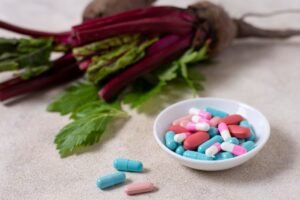Does Coffee Help My Digestion?
Many studies have been published on coffee and its effects on various areas of digestion; Some report positive results, while others report less positive results.
The breakdown of food and drink is digestion which is carried through the synchronized working of many organs. It is regulated by blood vessels and various hormones. It can be affected by many external factors. Coffee has been suggested as a treatment for some most common digestive problems, diarrhea, and heartburn. Studies have shown that drinking coffee can improve bile, gastric, and pancreatic secretions.
Both play an important role in the entire digestive process. Stomach disorders such as:
- Gastroesophageal reflux disease (GERD),
- Heartburn
- Gastric and Duodenal ulcers, etc,
For some, it can be painful and uncomfortable. Drinking coffee is not considered a major cause of heartburn or symptoms of GERD and also does not involve the development of ulcers of the abdomen or duodenum.
An additional problem in the digestive process is the motility of the digestive tract. A balance must be found between complete digestion without interruption. Coffee stimulates the motility of the digestive tract. In turn, it reduces the risk of constipation. But if you wonder, does coffee help my digestion, read thoroughly to know more about it.
Does Coffee Help My Digestion?
-
Effect of Coffee on Stomach
Proof to connect a coffee with the motion in the research was found to be claimed by 29% of volunteers. When participants measured the activity of their intestine processing, the researchers found there was a pronounced impact, with both decaffeinated and regular coffee resulting in contractions within 4 minutes in the lower bowel. Moreover, a review of studies in Scientific Reports found that having coffee supported in taking digestive function back to form in individuals who had just undergone abdominal surgery. It was found in the research that the drink increased the recovery of gastrointestinal activity after the process, and assists to make the bowels of such patients move again.
-
Digestion After Meals
Apart from possibly helping with healthy bowel actions, coffee has normally been considered as a digestif, which relates to a drink that seemingly benefits digestion when taken after a meal. Although the coffee and digestion proofs aren’t powerful enough to propose the drink can support breaking down food more effectively, a study outlined how caffeine triggers the discharge of stomach acid. Alternatively, stomach acid is required to support the digestion of proteins.
There Could be a prolonged benefit to digestive health from drinking coffee as well. A review in the Nutrients journal stated that polyphenol plant chemicals, comprising those present in coffee, triggers useful gut bacteria and prevent the growth of injurious bugs.
-
Dyspepsia
When we talk about the effect of coffee on digestion, HarvardPublishing indicates the gastric acid-generating effect of stimulants can also be a drawback, particularly as caffeine also loosens up the esophageal sphincter that divides the esophagus and the stomach. For those vulnerable, this double jinx can have the effect of deteriorating acid reflux or related indigestion and dyspepsia symptoms.
It could also pay to be careful with coffee intake if you have such a situation that enhances gut sensibility. The Colitis and Crohn’s Foundation recommends that drinks that contain caffeine such as coffee should not be taken by individuals with IBD (Inflammatory bowel disease) and IBD (Irritable Bowel Syndrome) when experiencing an outburst.
-
Coffee as Dietary Staples for Many
Coffee is one of the most famous and researched foods that is enjoyed by many people all around the world. It includes varieties of caffeine, polyphenol (chlorogenic acid), Trigonelline and Diterpenes, Cafestol. These compounds are well flavored with physiological disruption of coffee. Caffeine is an important pharmacologically active combination of coffee and it is a trigger of the Nervous system.
-
Safe Limits for Coffee
The EFSA (European Food Safety Authority) on Caffeine safety recommends that a reduced caffeine intake, of about 400mg caffeine in a day which is equal to 5 cups, can be taken as part of a well-balanced diet and lively lifestyle. Breastfeeding and pregnant women are warned to restrict their caffeine consumption to 200mg a day. A normal cup of coffee gives roughly 75–100mg of caffeine.
Coffee contains some health-promoting ingredients, the main health-promoting ingredients in coffee are chlorogenic acid and caffeic acid. Approximately 2.5 times more polyphenols are found in coffee than in tea. Polyphenols have a broad range of health benefits, many of which seem to be dependent on the metabolism of these large molecules by gut microbes. For health reasons, and for increasing your intake of chlorogenic acid, it’s best to drink four cups of coffee a day. I believe it is part of a healthy diet, but it’s not necessary.
Well, we can not say with certainty whether coffee is that beneficial or not, but you can contact an expert. If you too think that coffee affects your digestion you can consult a Gastroenterologist in Lahore to know more about such facts. You can book an appointment through Marham with one of the Best Gastroenterologists in Lahore.
Frequently Asked Questions (FAQs)
-
How does coffee affect your stomach?
Answer – The diuretic properties of coffee cause you to urinate often. Thus, when you drink black coffee without sugar, all the toxins and bacteria are flushed out. This helps to clean your stomach.
-
Can coffee reduce stomach acid?
Answer – Coffee has about the same acidity as watermelons, and a lower acid content than many common foods, like tomato (about 4.3) or orange juice (around 3.7). Because coffee is acidic, it is unlikely to increase the acidity of your stomach.
-
Is coffee good for bloating?
Answer – Even though some people find that coffee helps with bloating because it’s a diuretic, others become sensitive to it and experience the opposite effect. The good news is, there are plenty of herbal teas that can reduce belly bloating, and they’re so delicious, you might not even miss the coffee.


















